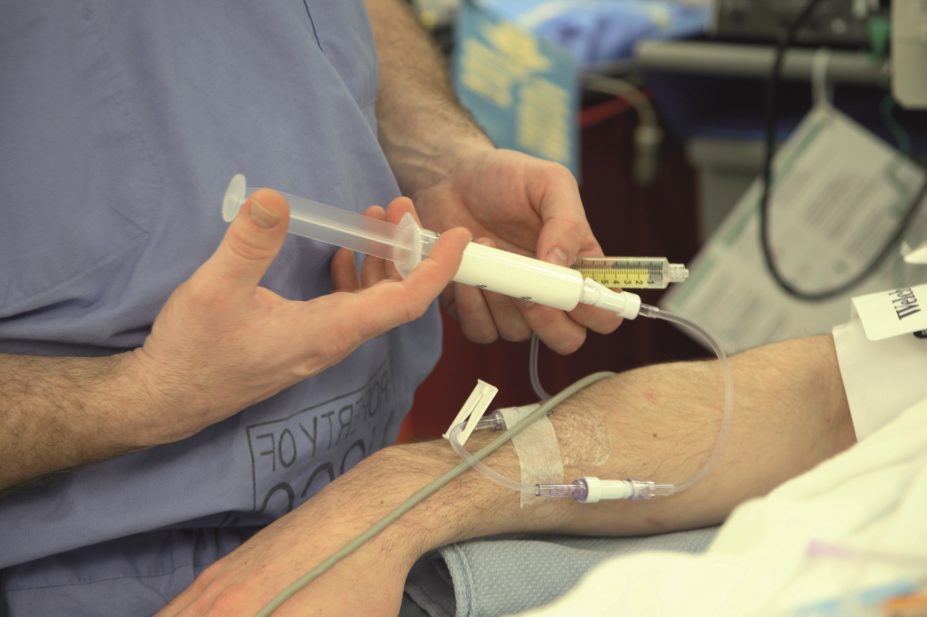
Alamy
Anaesthetists in Australia and New Zealand are campaigning for pholcodine-containing cough medicines to become prescription-only products.
The call follows fresh concerns that the medicines may trigger a potentially fatal anaphylactic reaction to neuromuscular blocking drugs.
“Pholcodine has a structure that is similar to some of the muscle relaxant drugs that are given as part of a general anaesthetic,” explains Michael Rose, chairman of the Australian and New Zealand Anaesthetic Allergy Group (ANZAAG). “Some good research by Florvaag and Johansson[1]
in Norway and Sweden identified that antibodies made by people to pholcodine may trigger anaphylaxis when the muscle relaxant with the similar structure is given. These reactions can be severe and can even result in brain damage or death.”
Follow–up research[2]
found that after the products were withdrawn from sale in Norway in 2007, the number of fatal allergic reactions to muscle relaxants fell.
A recent review[3]
into anaesthesia-related mortality in Australia and New Zealand between 2009 and 2011, published by the Australian and New Zealand College of Anaesthetists (ANZCA), found that seven deaths had been caused by an anaphylactic reaction to an anaesthetic.
Larry McNicol, chairman of the ANZCA mortality committee, says that although this number is small it has risen over the past three years, and five or six of the cases were linked to muscle relaxants.
Rose says that although there is evidence of an association between pholcodine cough medicines and the risk of a fatal anaphylactic reaction, proof of the link would require a clinical trial that “no one would be willing to fund”.
The European Medicines Agency’s Committee for Medicinal Products for Human Use (CHMP) conducted a safety review of pholcodine-containing medicines in 2011 and decided that the products could remain on the market.
“The committee found no firm evidence to substantiate the hypothesis of cross sensitisation between pholcodine and neuromuscular blocking agents and a subsequent increased risk of anaphylactic reactions during surgery,” it said in 2011 following its review. “Pholcodine-containing medicines have been available for the treatment of non-productive cough in the EU for decades and existing data confirm a positive benefit-risk balance of these medicines.”
Rose warns that the countries in which pholcodine-containing cough medicines are freely available over the counter are likely to face similar safety concerns as those being observed in Australia and New Zealand.
References
[1] Florvaag E & Johansson SG. The pholcodine story. Immunology and Allergy Clinics. 2009;29:419-427. doi:10.1016/j.iac.2009.04.002.
[2] Florvaag E, Johansson SG, Irgens Ã… et al. IgE-sensitization to the cough suppressant pholcodine and the effects of its withdrawal from the Norwegian market. Allergy 2011;66:955-960. doi:10.1111/j.1398-9995.2010.02518.x.
[3] Larry McNicol (ed). Safety of anaesthesia: A review of anaesthesia-related mortality reporting in Australia and New Zealand 2009-2011. Australian and New Zealand College of Anaesthetists. 2014.


